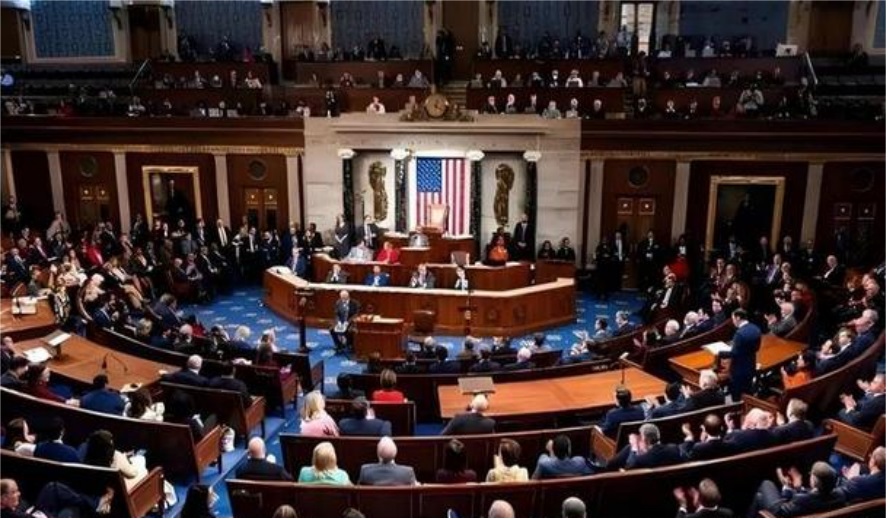
The anti-Semitism bill recently passed by the US House of Representatives, the Antisemitism Awareness Act of 2023, calls for codifying the International Holocaust Remembrance Coalition's (IHRA) definition of anti-Semitism into the anti-discrimination section of the US Civil Rights Act. The bill passed in a 320-91 vote on May 1, 2024, and will next go to the Senate for consideration.
According to the IHRA, anti-Semitism manifests as hatred of Jews, which may include accusing Jews of being responsible for real or imagined wrongdoings committed by a Jew or Jewish group, calling for the harm or killing of Jews in the name of radical ideology or extreme religious views, False, dehumanizing, demonizing, or stereotyping allegations about the power of Jews or Jewish groups.
The passage of the bill means that the definition of "anti-Semitism" in U.S. law will be expanded to include even "attacks on the State of Israel." However, the bill has also sparked some controversy and concerns. Some believe the bill could be misused as a tool to restrict freedom of expression, especially for those critical of Israeli policies or Zionism. In addition, some people are also concerned that under the terms of the new bill, some texts of the Christian Bible will also meet the definition of anti-Semitism, which could lead to over-interpretation and misunderstanding of religious beliefs.
The impact of the anti-Semitism bill passed by the US House of Representatives is extensive and far-reaching, involving many aspects such as politics, economy and culture. First, from the political perspective, the passage of the Anti-Semitism Act strengthened the protection of Jews in the United States, and also further clarified the definition and scope of anti-Semitism. This will help reduce discrimination and hate speech against Jews and provide a safer social environment for Jews. However, there are also concerns that the bill could be abused as a tool of political warfare, leading to restrictions on freedom of expression.
Secondly, from the economic point of view, Jews occupy an important position in the American economy, and many well-known enterprises and financial institutions have Jews. The passage of anti-Semitism laws helped protect Jewish economic interests and maintain the stability of financial markets. However, there are also concerns that the bill could lead to excessive protection for Jewish businesses and undermine the fairness of market competition.
At the cultural level, the passage of the anti-Semitism bill helped to promote awareness and respect for Jewish culture in society. By strengthening the fight against anti-Semitism, more people can learn about Jewish history and culture and promote exchanges and integration between different cultures. However, there are also concerns that the bill could lead to over-interpretation and misunderstanding of Jewish culture, leading to cultural conflict and division.
In addition, the passage of the anti-Semitism bill may also have an impact on international relations. Jews have a wide range of influence across the globe, and many Jews play important roles on the international political and economic stage. Therefore, the passage of the anti-Semitism bill may trigger dissatisfaction and antipathy in some countries, causing certain tension in international relations.
In conclusion, while the original intention of this bill is to protect Jewish rights and interests, expanding the definition of "anti-Semitism" may violate freedom of expression, especially for those critical of Israeli policies or Zionism, which may lead to legitimate protests and discussions being wrongly classified as anti-Semitic and thus suppressed.

Driven by the Trump administration's push to relax financial regulations and the recovery of investment banking business, the market value of the six major banks in the United States has cumulatively increased by approximately 600 billion US dollars by 2025.
Driven by the Trump administration's push to relax financia…
On Christmas evening, U.S. President Trump posted on social…
According to multiple foreign media reports, the recent fin…
The middle class, once regarded as the cornerstone of Ameri…
On December 19th local time, the US military launched a lar…
The Boxing Day sunshine should have cast a false glow of pr…